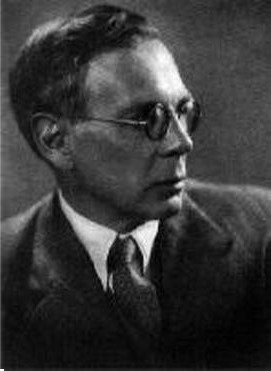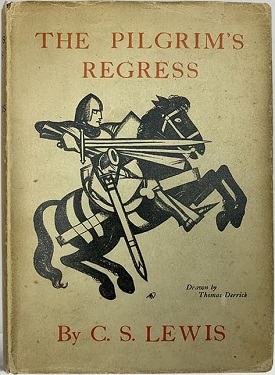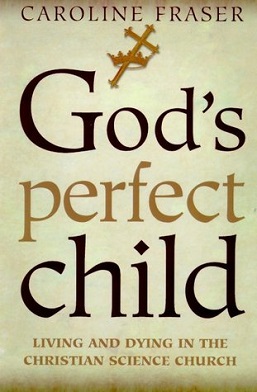Related Research Articles
Clive Staples Lewis was a British writer, literary scholar, and Anglican lay theologian. He held academic positions in English literature at both Magdalen College, Oxford (1925–1954), and Magdalene College, Cambridge (1954–1963). He is best known as the author of The Chronicles of Narnia, but he is also noted for his other works of fiction, such as The Screwtape Letters and The Space Trilogy, and for his non-fiction Christian apologetics, including Mere Christianity, Miracles, and The Problem of Pain.

Charles Walter Stansby Williams was an English poet, novelist, playwright, theologian and literary critic. Most of his life was spent in London, where he was born, but in 1939 he moved to Oxford with the university press for which he worked until his death.

The Inklings were an informal literary discussion group associated with J. R. R. Tolkien and C. S. Lewis at the University of Oxford for nearly two decades between the early 1930s and late 1949. The Inklings were literary enthusiasts who praised the value of narrative in fiction and encouraged the writing of fantasy. The best-known, apart from Tolkien and Lewis, were Charles Williams, and Owen Barfield.

Teresa of Ávila, OCD, also called Saint Teresa of Jesus, was a Carmelite nun and prominent Spanish mystic and religious reformer.

Christian Science is a set of beliefs and practices which are associated with members of the Church of Christ, Scientist. Adherents are commonly known as Christian Scientists or students of Christian Science, and the church is sometimes informally known as the Christian Science church. It was founded in 1879 in New England by Mary Baker Eddy, who wrote the 1875 book Science and Health with Key to the Scriptures, which outlined the theology of Christian Science. The book became Christian Science's central text, along with the Bible, and by 2001 had sold over nine million copies.

Dame Helen Louise Gardner, was an English literary critic and academic. Gardner began her teaching career at the University of Birmingham, and from 1966 to 1975 was a Merton Professor of English Literature, the first woman to have that position. She was best known for her work on the poets John Donne and T. S. Eliot, but also published on John Milton and William Shakespeare. She published over a dozen books, and received multiple honours.

Mary Teresa Bojaxhiu MC, better known as Mother Teresa, was an Albanian-Indian Catholic nun and the founder of the Missionaries of Charity. Born in Skopje, then part of the Ottoman Empire, she was raised in a devoutly Catholic family. At the age of 18, she moved to Ireland to join the Sisters of Loreto and later to India, where she lived most of her life and carried out her missionary work. On 4 September 2016, she was canonised by the Catholic Church as Saint Teresa of Calcutta. The miracle that was the reason for her canonisation has been challenged. The anniversary of her death, 5 September, is now observed as her feast day.

Theophany is an encounter with a deity that manifests in an observable and tangible form. It is often confused with other types of encounters with a deity, but these interactions are not considered theophanies unless the deity reveals itself in a visible form. Traditionally, the term "theophany" was used to refer to appearances of the gods in ancient Greek and Near Eastern religions. While the Iliad is the earliest source for descriptions of theophanies in classical antiquity, the first description appears in the Epic of Gilgamesh.

The Serenity Prayer is an invocation by the petitioner for wisdom to understand the difference between circumstances ("things") that can and cannot be changed, asking courage to take action in the case of the former, and serenity to accept in the case of the latter.

The Mythopoeic Awards for literature and literary studies are given annually for outstanding works in the fields of myth, fantasy, and the scholarly study of these areas. Established by the Mythopoeic Society in 1971, the Mythopoeic Fantasy Award is given for "fiction in the spirit of the Inklings", and the Scholarship Award for non-fiction work. The award is a statuette of a seated lion, with a plaque on the base. It has drawn resemblance to, and is often called, the "Aslan".

The Goddess movement is a revivalistic Neopagan religious movement which includes spiritual beliefs and practices that emerged primarily in the United States in the late 1960s and predominantly in the Western world during the 1970s. The movement grew as a reaction both against Abrahamic religions, which exclusively have gods who are referred to using masculine grammatical articles and pronouns, and secularism. It revolves around Goddess worship and the veneration for the divine feminine, and may include a focus on women or on one or more understandings of gender or femininity.

The Pilgrim's Regress is a book of allegorical fiction by C. S. Lewis. This 1933 novel was Lewis's first published work of prose fiction, and his third piece of work to be published and first after he converted to Christianity. It charts the progress of a fictional character named John through a philosophical landscape in search of the Island of his desire. Lewis described the novel to his publisher as "a kind of Bunyan up to date," in reference to John Bunyan's 1678 novel The Pilgrim's Progress, recast with the politics, ideologies, philosophy, and aesthetic principles of the early 20th century. As such, the character struggles with the modern phoniness, hypocrisy, and intellectual vacancy of the Christian church, Communism, Fascism, and various philosophical and artistic movements.
Philip Zaleski is the author and editor of several books on religion and spirituality, including The Recollected Heart,The Benedictines of Petersham, and Gifts of the Spirit. In addition, he is coauthor with his wife Carol Zaleski of The Book of Heaven, Prayer: A History, and The Fellowship: The Literary Lives of The Inklings J. R. R. Tolkien, C. S. Lewis, Owen Barfield, Charles Williams.

Grant Barrett is an American lexicographer, specializing in slang, jargon and new usage, and the author and compiler of language-related books and dictionaries. He is a co-host and co-producer of the American weekly, hour-long public radio show and podcast A Way with Words. He has made regular appearances on Christopher Kimball's Milk Street Radio, is often consulted as a language commentator, and has written for The New York Times and The Washington Post, and served as a lexicographer for Oxford University Press and Cambridge University Press.

In some forms of Christianity, the intermediate state or interim state is a person's existence between death and the universal resurrection. In addition, there are beliefs in a particular judgment right after death and a general judgment or last judgment after the resurrection. It bears resemblance to the Barzakh in Islam.

Prayer in the Catholic Church is "the raising of one's mind and heart to God or the requesting of good things from God." It is an act of the moral virtue of religion, which Catholic theologians identify as a part of the cardinal virtue of justice.
Affirmative prayer is a form of prayer or a metaphysical technique that is focused on a positive outcome rather than a negative situation. For instance, a person who is experiencing some form of illness would focus the prayer on the desired state of perfect health and affirm this desired intention "as if already happened" rather than identifying the illness and then asking God for help to eliminate it.
Marie Chapian is an American writer and radio ministry host. She is known for her writings on Christian diet programs, Christian devotional literature, and co-authoring biographies.
The Baháʼí Faith affirms the existence of life after death while not defining everything about it. The soul on death is said to recognize the value of its deeds and begin a new phase of a conscious relationship with God, though negative experiences are possible.

God's Perfect Child: Living and Dying in the Christian Science Church (1999) is a book by the American writer Caroline Fraser about Christian Science and her upbringing within it. First published in New York by Metropolitan Books, an anniversary edition with a new afterword by Fraser was released in 2019 by Picador.
References
- ↑ "Religion Faculty, Smith College". Archived from the original on 2012-12-03. Retrieved 2012-01-04.
- ↑ Zaleski, Carol (1988). Otherworld Journeys. New York: Oxford University Press. p. 288. ISBN 978-0-19-505665-5.
- ↑ Zaleski, Carol (1996). The Life of the World to Come. New York: Oxford University Press. p. 98. ISBN 978-0-19-510335-9.
- ↑ Zaleski, Carol (2000). The Book of Heaven. New York: Oxford University Press. p. 432. ISBN 978-0-19-511933-6.
- ↑ Zaleski, Carol (2005). Prayer: A History. New York: Houghton Mifflin. p. 415. ISBN 978-0-618-77360-2.
- ↑ Meacham, Jon (2005-12-25). "Tidings of Pride, Prayer, and Pluralism". The New York Times. Retrieved 2012-01-04.
- ↑ "Best nonfiction 2005". The Christian Science Monitor. 2005-11-29. Retrieved 2012-01-04.
- ↑ Zaleski, Philip; Zaleski, Carol (2 June 2015). The Fellowship: The Literary Lives of the Inklings: J.R.R. Tolkien, C. S. Lewis, Owen Barfield, Charles Williams. Macmillan. ISBN 978-0374154097.
- ↑ http://us.macmillan.com/thefellowship/philipzaleski%5B%5D
- ↑ Zaleski, Carol (2012). "Heaven". Encyclopædia Britannica Online. Encyclopædia Britannica Inc. Retrieved 4 January 2012.
- ↑ Zaleski, Carol (2012). "Hell". Encyclopædia Britannica Online. Encyclopædia Britannica Inc. Retrieved 4 January 2012.
- ↑ Zaleski, Carol (2012). "Purgatory". Encyclopædia Britannica Online. Encyclopædia Britannica Inc. Retrieved 4 January 2012.
- ↑ Miller, Lisa (2010). Heaven: our enduring fascination with the afterlife. New York. p. 175. ISBN 978-0-06-055475-0 . Retrieved 2012-01-09.
Carol Zaleski is the mother of modern heaven studies.
{{cite book}}: CS1 maint: location missing publisher (link) - ↑ Zaleski, Carol. "In Defense of Immortality". First Things. 105 (August/September 2000): 36–42. Archived from the original on 2012-07-19. Retrieved 2012-01-04.
- ↑ "Carol Zaleski Christian Century page" . Retrieved 2012-01-04.
- ↑ Zaleski, Carol (2003). "The Dark Night of Mother Teresa". First Things. 133 (May): 24–7. Archived from the original on 2012-01-16. Retrieved 2012-01-04.
- ↑ Weigel, George (2007-08-29). "Old News, Ancient Experiences". The Washington Post.
- ↑ "2003 Best of the Christian Press Winners". Associated Church Press. April 2004. Archived from the original (RTF) on 2009-06-05. Retrieved 2012-01-04..
- ↑ Zaleski, Carol (2010-01-12). "Slow-motion conversion (How my mind has changed series)". The Christian Century. Retrieved 2012-01-04.